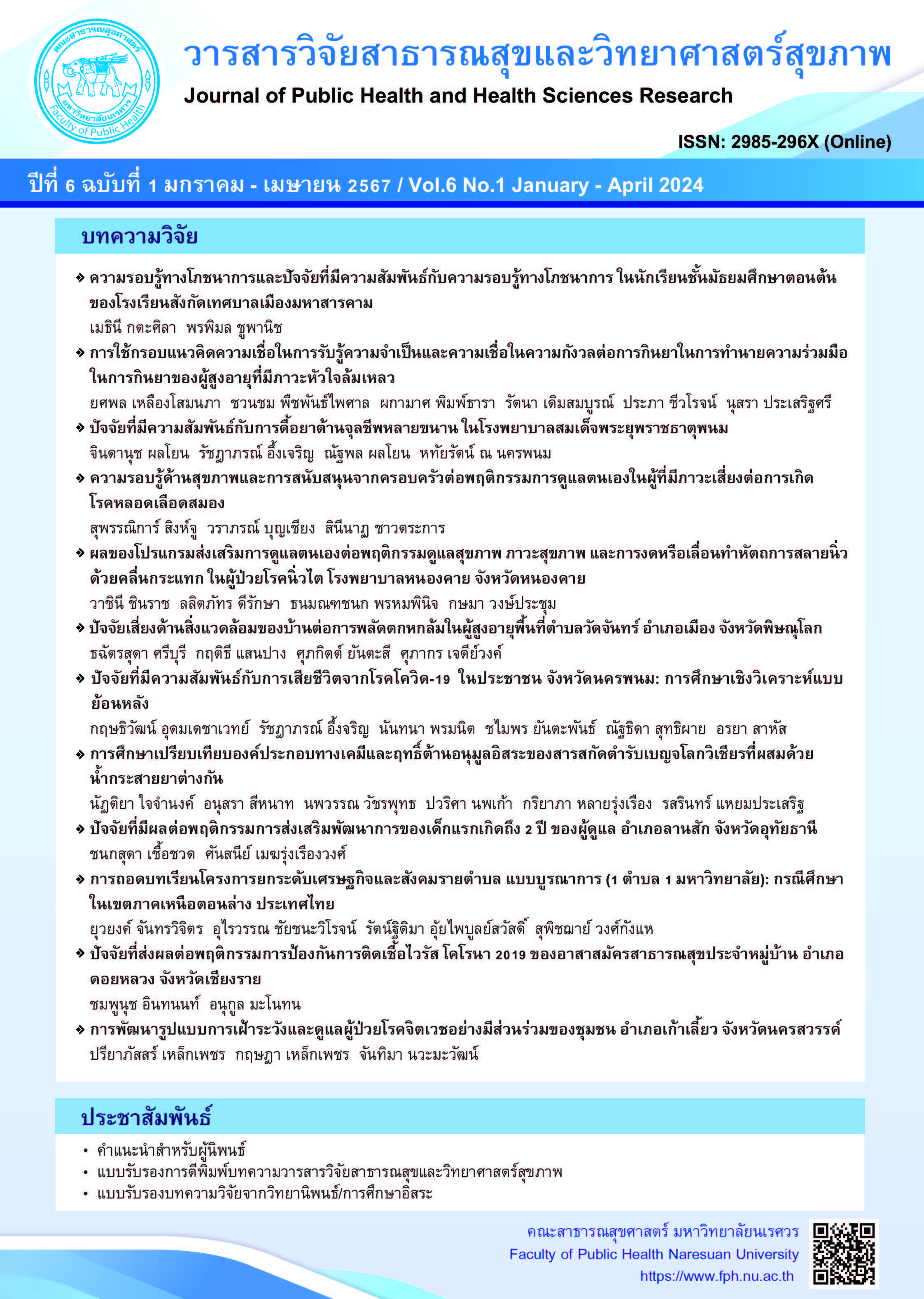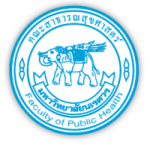The lessons learned from the integrated sub-district economic and social upgrading project by University to Tambon (U2T): A case study in the Lower Northern Region, Thailand
Keywords:
1 sub-district 1 university, Community-based tourism, Three regions market, Economic and social upgrading, U2TAbstract
The process of the lesson learned from the integrated sub-district economic and social upgrading project (1sub-district per 1 university): A case study in the lower northern region aims to study the operational processes, outcomes, factors influencing the success, and guidelines for the development of operational processes. The sample, which includes project team members and stakeholders, consists of 21 participants. The data collection included documentary analysis, in-depth interviews, and focus group discussions utilizing guidelines for in-depth and focus group interview questions. Data were analyzed by content analysis.
The study findings revealed that community problem identification and needs assessment were carried out through surveys, on-site visits, and community meetings. All these approaches led to operational processes, which included planning, implementation, monitoring, and evaluation, with participation from the community and all relevant stakeholders. Additionally, the community organized the Talad-saam-witee community tourism market and initiated creative community-based tourism projects. The objectives of these projects were to enhance the local economy and promote sustainable tourism. Social capital resources involved in the project included cultural tourism destinations, local food, wicker products, and agriculture. Key individuals engaged in the project implementation encompass the project coordinator, subdistrict administrative organization team, community leaders, local community representatives, students, graduates, and project-hired community members. The project received main funding support from the Ministry of Higher Education, Science, and Research. Essential skills employed during project implementation include participatory management. The project resulted in increased livelihoods and income for the community. Important factors contributing to the project's success included community participation, involvement, and budget allocation.The developmental direction emphasized the
involvement of relevant stakeholders at all stages and quality control of the products, requiring continuous implementation.
References
Bertalanffy, L. V. (1968). General system theory: Foundations, development, applications. New York: George Braziller.
Chaithaweep, C. (2016). Successful factors of poverty reduction. Integrated Social Science Journal, 3(2), 188-214. (in Thai)
Cohen, J. M., & Uphoff, N.T. (1981). Rural development participation: Concept and measure for project design implementation and evaluation: Rural development committee center for international studies. New York: Cornell University Press.
Kaewsawat, S., Khammaneechan, P., Waeng, D., Supakarnnorasate Th., & Chokprasit, P. (2019). Developing health promotion model for the youths in Kho-Libong Sub-district, Kantang District, Trang Province. Journal of Health Science, 28(2), 32-42. (in Thai)
Keawchaoon, K. & Chuntuk, T. (2017). Team working for increasing work effectiveness. Dusit Thani College Journal, 11(1), 355-370. (in Thai)
Ministry of Higher Education, Science, Research, and Innovation. (2020). Integrated subdistrict economic and social upgrading project (1subdistrict 1 university), Building strong foundations for the nation by University to Tambon. Retrieved July 1, 2022, from https://www.mhesi.go.th/index.php/en/71-flagshipproject.html (in Thai)
Ministry of Higher Education, Science, Research, and Innovation. (2020). Guidelines for integrated subdistrict economic and social upgrading project: 1 subdistrict 1 university (Building strong foundations for the nation by University to Tambon). Retrieved July 1, 2023, from https://drive.google.com/file/d/1T6zMPHgq6fNueRU7nmQjGPJo5CJVQ_y3/view (in Thai)
Pensiriwan, N. (2018). Leadership and organization development to incremental efficiency. Journal of MCU Humanities Review, 4(2), 117-125. (in Thai)
Thammasat University Research and Consultancy Institute. (2020). Research project on the impact of COVID-19 on promoting employment. Retrieved July 27, 2023, from https://www.doe.go.th/prd/assets/upload/files/lmia_th/f70f1d6bccf6452c89c10eb17d5f9dbd.pdf (in Thai)
Wasi, P. (2004). New theory in medicine. (3rd ed.). Bankok: Mhochawbaan. (in Thai)
Downloads
Published
How to Cite
Issue
Section
License
Copyright (c) 2024 Journal of Public Health and Health Sciences Research

This work is licensed under a Creative Commons Attribution-NonCommercial-NoDerivatives 4.0 International License.
The published article is copyrighted by the Journal of Public Health and Health Sciences Research.
The statements that appear in each article in this academic and research journal are the personal opinions of each author and are not related to Naresuan University and other faculty members in the university. Responsibilities regarding each article are the responsibility of each author.






